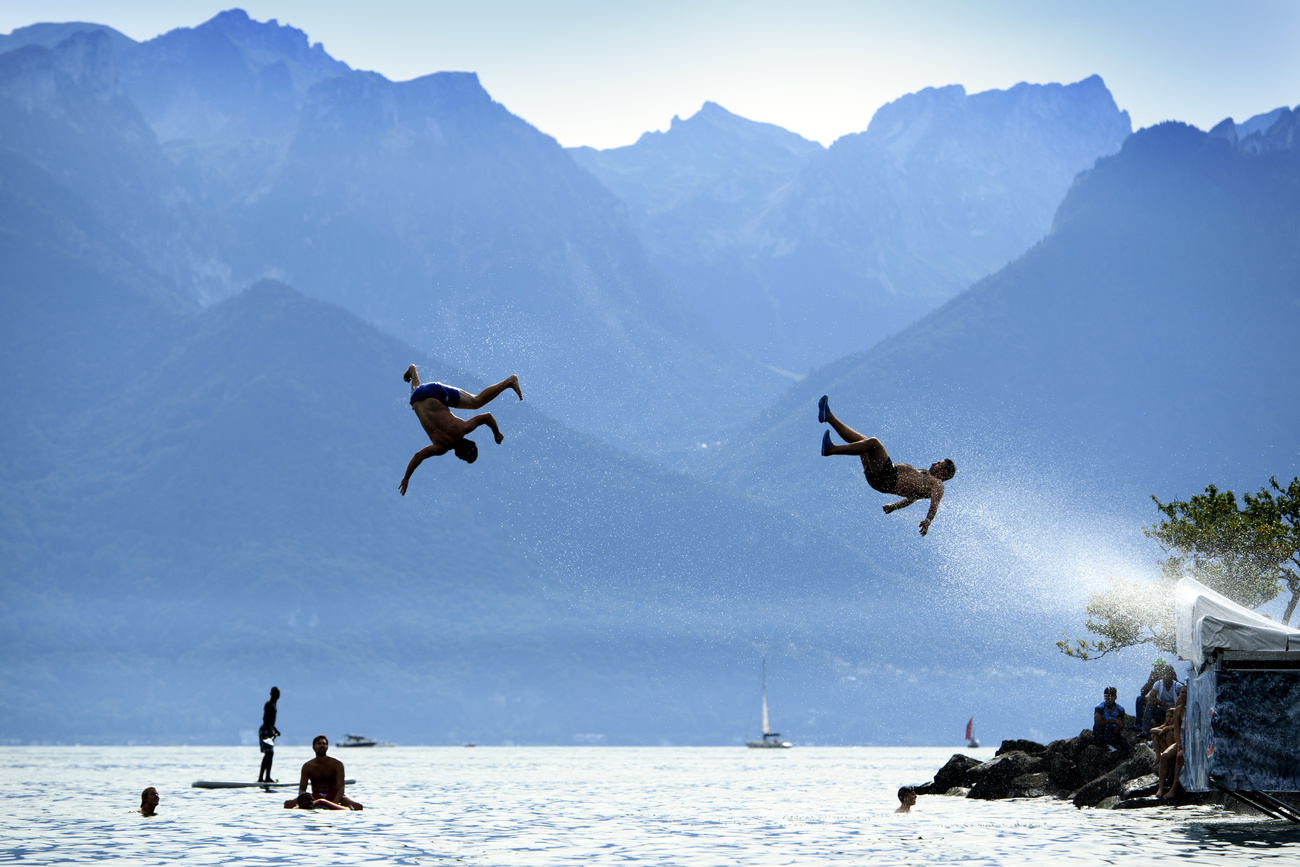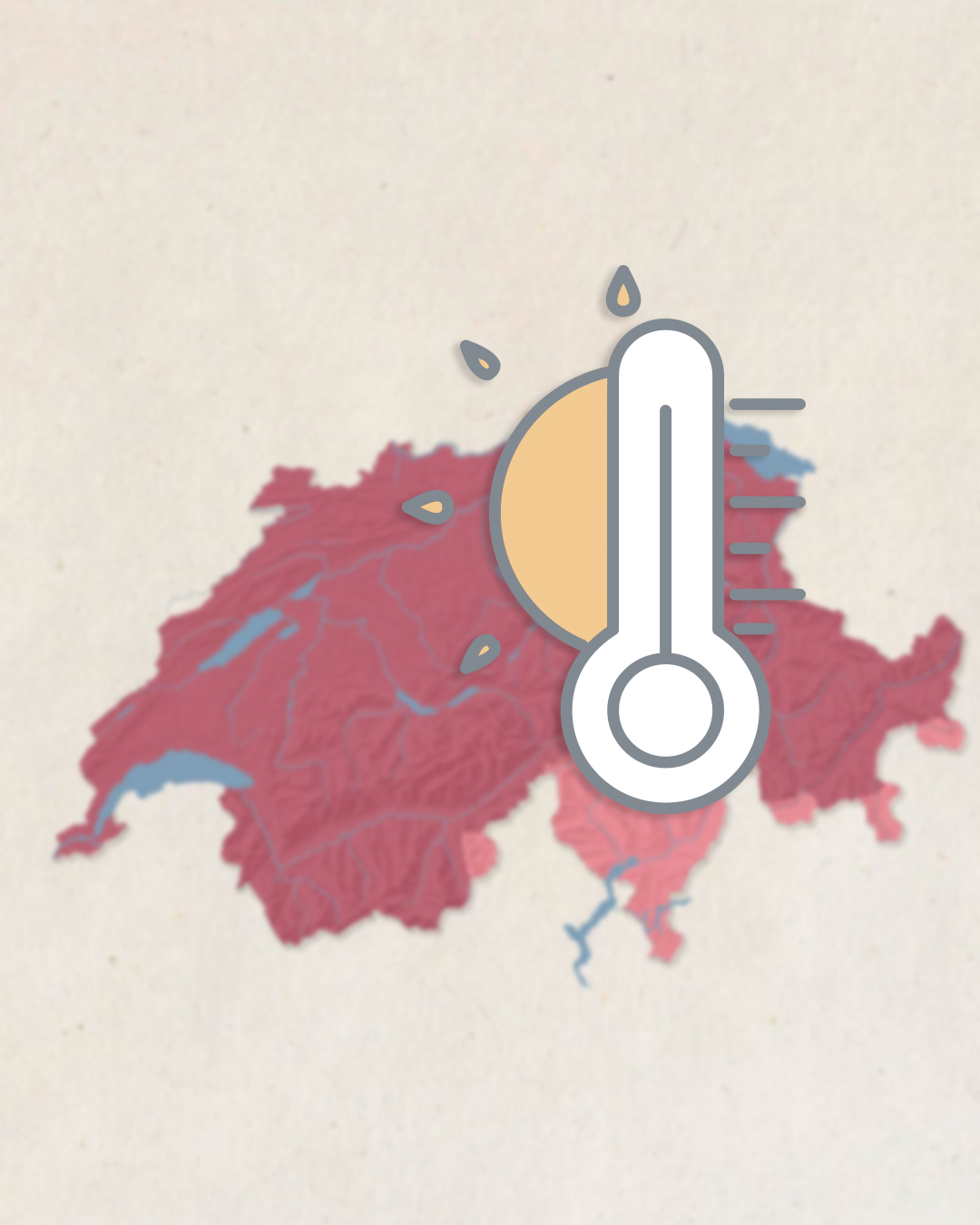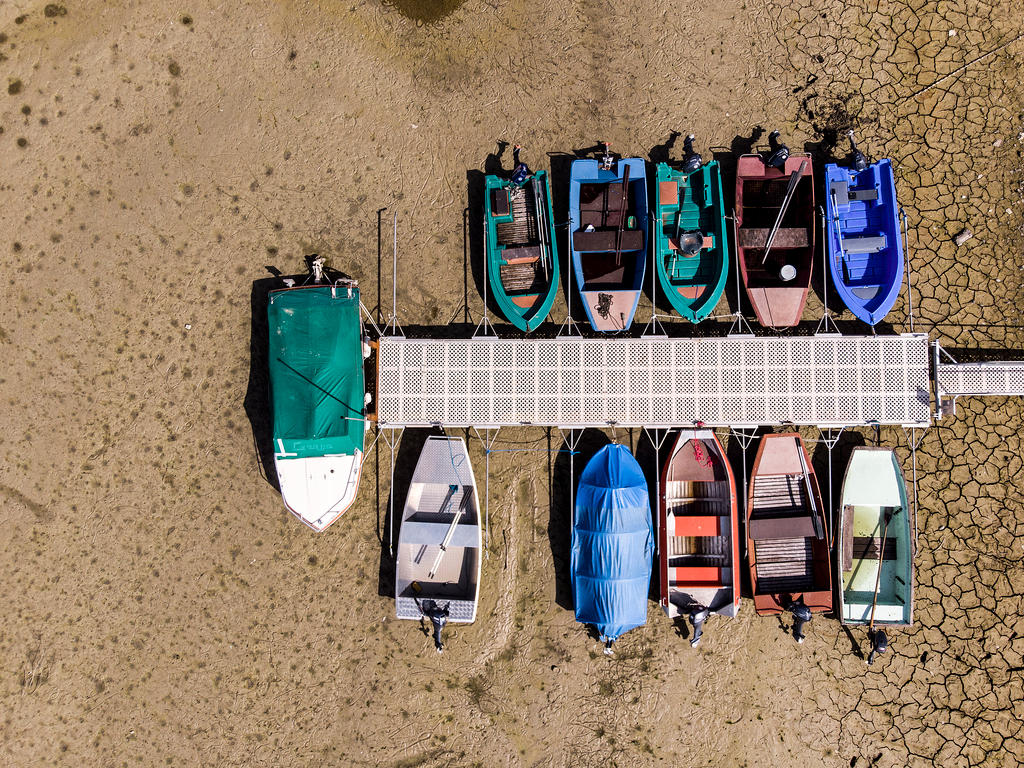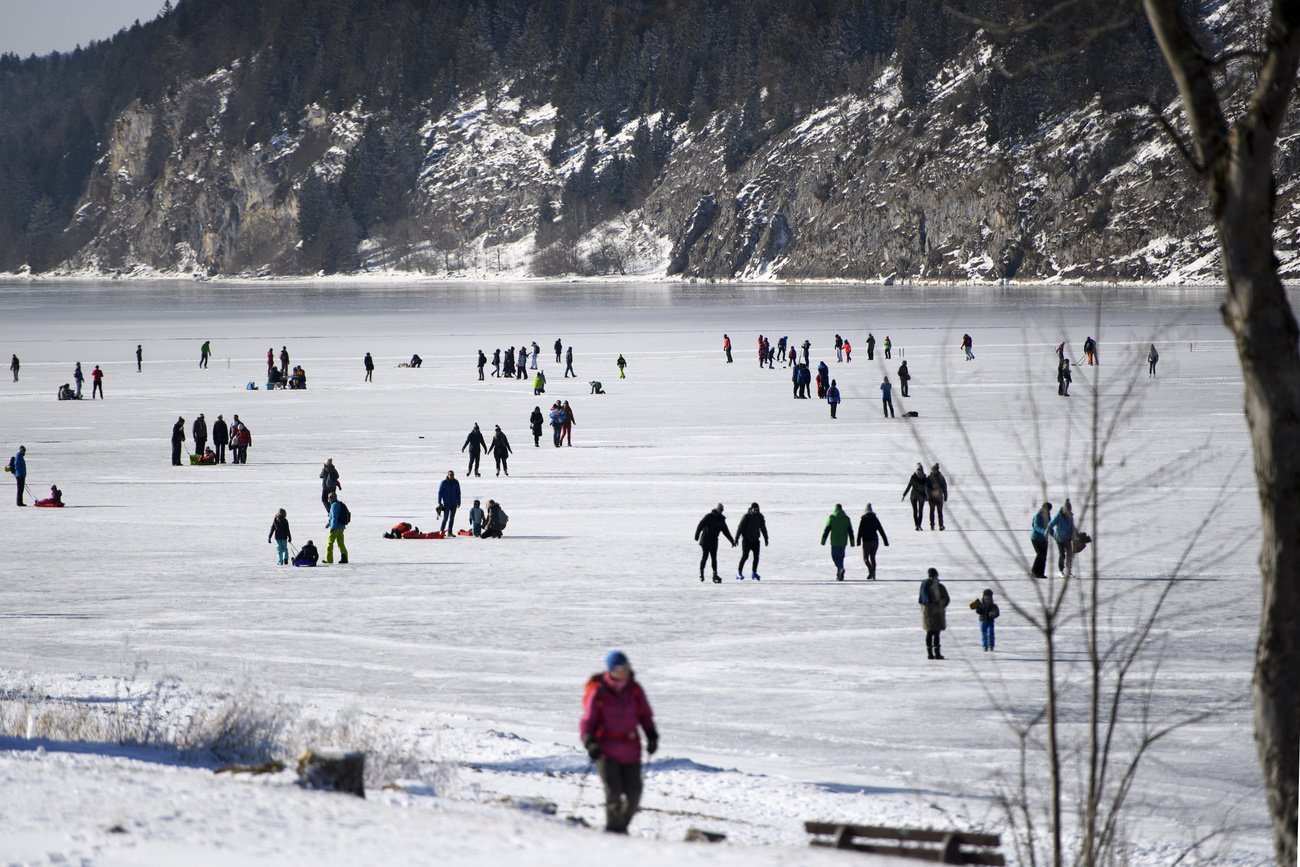
Climate report sounds water alarm in Switzerland

At certain times and in certain regions, water will become so scarce or so warm in Switzerland that humans will have to curb their activities and nature will suffer, according to a government study. On the other hand, more rain will lead to more local flooding.
“Without climate protection measures, towards the end of the century there will be on average 30% more water in rivers in winter but 40% less in summer than before,” said the Hydro-CH2018 research projectExternal link, published by the Federal Office for the Environment on Tuesday.
The study predicted that temperature in rivers and streams will rise by around 5.5° Celsius in summer and in winter there will be more precipitation. More rain will fall than snow because the snow line will rise. Less snow and glacier ice will lead to lower water reserves for the summer. As a result, the water is also getting warmer.
With climate protection measures, such as those provided for in the revised CO2 Act, the changes are more moderate, according to the study, but will still have significant consequences.
Summers will become drier and hotter in the future, it said. In areas heavily used for agriculture, water could become scarce because plants would then need a lot of water.
Rainfall will become heavier, which could lead to more natural hazards such as flooding and landslides.
Winter challenges
The project’s report, Effects of climate change on Swiss water bodiesExternal link, gives a concise overview of the results. Among other things there will be an impact on leisure and tourism.
“Higher winter temperatures are causing the number of new snow days in the Alps to decrease significantly. Winter sports resorts at lower levels have already felt the effects of the higher zero-degree isotherm [freezing level] in recent years and some have had to close down,” it said.
“To compensate for the decline in snowfall, most resorts have acquired snowmaking machines. In 2016, some 49% of the 22,500 kilometres of piste in Switzerland were created with artificial snow.”
However, the water needed for snowmaking must be available at high elevations in the autumn and winter months when flows are low. For this reason, many resorts collect melt water and rainfall in summer and store it in self-built reservoirs in the skiing areas. If this is not enough, water must be pumped from lower levels.
“Sometimes water from the local drinking water supply is used for snowmaking, which can cause conflicts,” the report noted.

More
The Swiss Alps are hotter than ever
Summer opportunities
On the other hand, climate change also opens up opportunities for the tourist areas in the mountains, according to the authors.
“It can be assumed that holidaymakers will increasingly seek the cooler mountain climate on hot summer days. A few years ago, a correlation between the number of overnight stays by Swiss tourists in mountain regions and high temperatures at lower elevations was demonstrated,” they wrote.
Because snowfall is starting later in the autumn, the hiking season is extending. The researchers said it wasn’t clear whether the new mountain lakes and landscapes left behind by glacier retreat could become attractive destinations for holidaymakers, but they said “attractive, versatile water bodies” were increasingly important for recreation in a time of climate change, letting people cool down and relax.

More
Torrid time predicted for Switzerland by 2060
Biodiversity winners and losers
As for biodiversity, “although new and valuable habitats will be created locally, such as in glacier forefields due to the retreat of the glaciers, habitats in general will become more similar because ecological niches disappear”.
The main sufferers will be highly specialised and cold-water species, such as brown trout, whereas generalists and warmwater species will benefit.
“When climate change changes the habitats of species, some can colonise higher-elevation Swiss regions, but others cannot. New non-native or even invasive species immigrate. These invasive species can compete with indigenous species and put them under even more pressure,” the report said.
“Until now, populations have generally been able to recover from extreme events,” the researchers concluded. “But this will become increasingly difficult as climate change progresses, until at some time a limit beyond which irreversible changes is reached, culminating in extinction of a species.”

More
Climate change poses risks to Swiss lake ecosystems

In compliance with the JTI standards
More: SWI swissinfo.ch certified by the Journalism Trust Initiative



























You can find an overview of ongoing debates with our journalists here . Please join us!
If you want to start a conversation about a topic raised in this article or want to report factual errors, email us at english@swissinfo.ch.